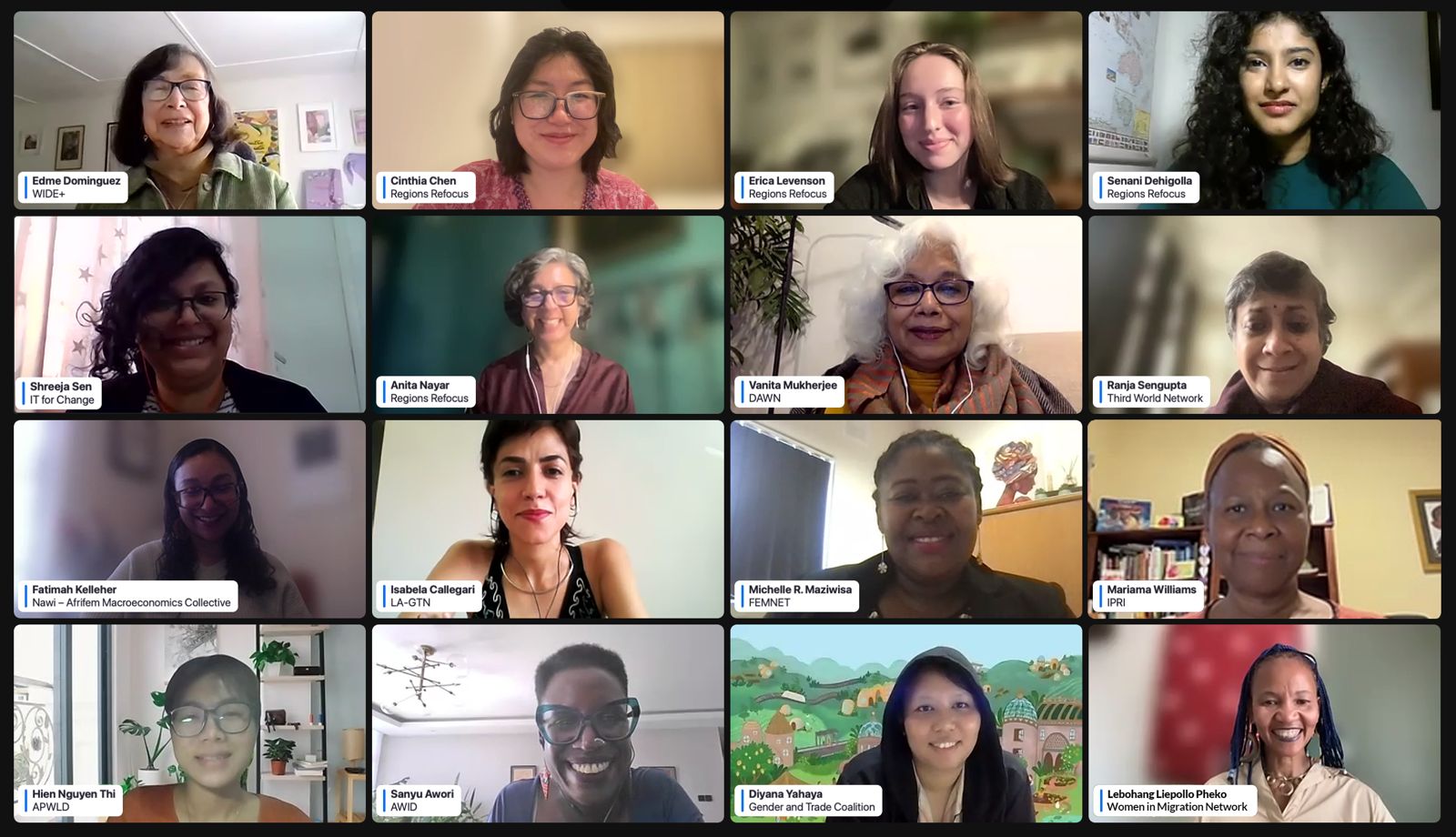The Gender and Trade Coalition convened its inaugural members’ call on 13 February 2024, attracting close to 100 participants. This three-part interactive event included a teach-in on gender and trade, a stocktaking of current trade policy through a critical feminist lens, and a review of the Coalition’s engagement in upcoming advocacy spaces.
An introduction to the interlinkage between gender and trade was led by Anita Nayar (Regions Refocus) and Mariama Williams (Global Afrodescendant Climate Justice Collaborative) and chaired by Michelle Maziwisa (African Women’s Development and Communications Network). The session included an interactive exercise for participants to share how trade is linked to issues facing women in their respective communities, countries, and regions, facilitated by Diyana Yahaya (FPAR Academy). This was followed by a herstory of the Coalition since its inception in 2018, delivered by Senani Dehigolla (Regions Refocus).
The second part of the call explored feminist concerns around critical issues related to regional trade agreements, such as: the Indo-Pacific Economic Framework for Prosperity, by Hien Nguyen Thi (Asia Pacific Forum on Women, Law, and Development), the African Continental Free Trade Area, by Fatimah Kelleher (Nawi–Afrifem Macroeconomics Collective), and the Latin America-EU Agreements, by Edmé Dominguez (Women in Development Europe+) and Isabela Callegari (Latin America Gender and Trade Network). Participants also presented on specific issues, including: the intersection of trade with the digital economy, by Shreeja Sen (IT for Change), COVID-19, by Vanita Mukherjee (Development Alternatives with Women for a New Era), and militarization, by Senani Dehigolla (Regions Refocus) and Lebohang Liepollo Pheko (Women in Migration Network). These substantive inputs were followed by four breakout groups for participants to deepen the discussion, identifying the trade justice struggles that connect with their work, and sharing policy alternatives that oppose the current neoliberal trade system.
The third part of the call presented opportunities to advance the Gender and Trade Coalition’s advocacy challenging unjust trade rules and policies. These included presentations on: the World Trade Organization’s 13th Ministerial Conference, by Ranja Sengupta (Third World Network); the 68th Commission on the Status of Women, by Sanila Gurung (Asia Pacific Forum on Women, Law, and Development); the World Summit on the Information Society+20 Consultation, by Shreeja Sen (IT for Change); the Financing for Development Forum, by Bhumika Muchhala (Third World Network); and the AWID Forum, by Sanyu Awori (Association for Women’s Rights in Development). The closing segment engaged all participants in planning the Coalition’s advocacy and analysis moving forward.
Join the GTC by endorsing our Unity Statement here. You can also join our mailing list, connect with us on X, or read more about our work at www.gendertradecoalition.org.






